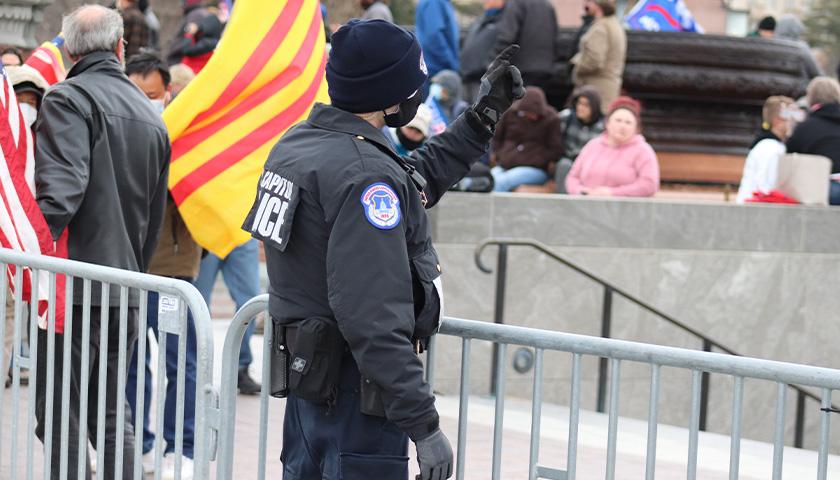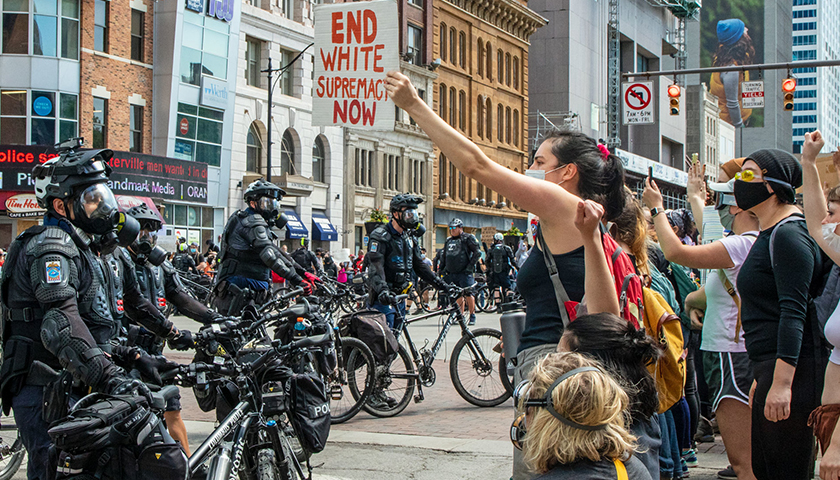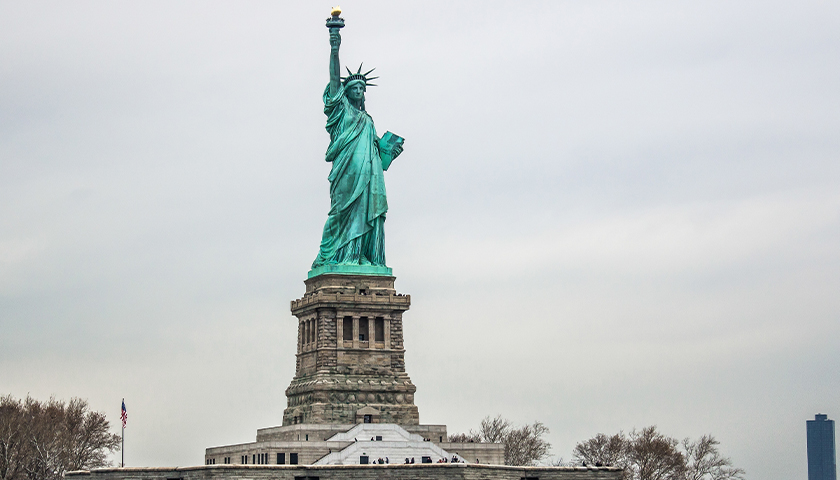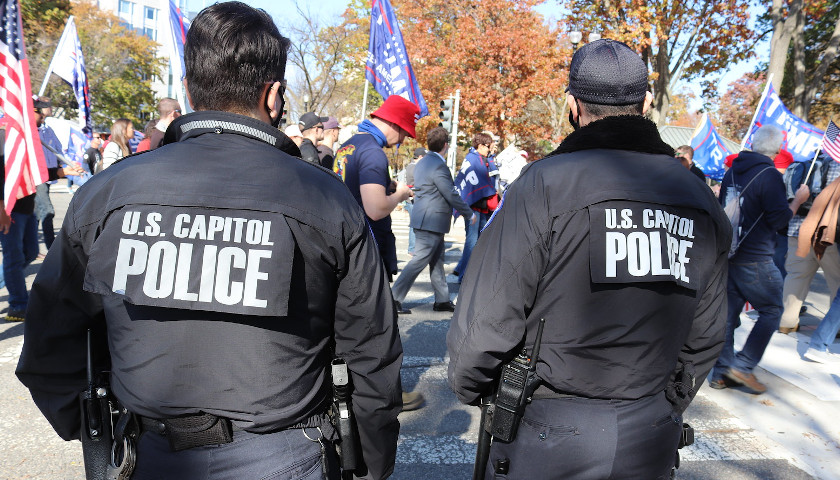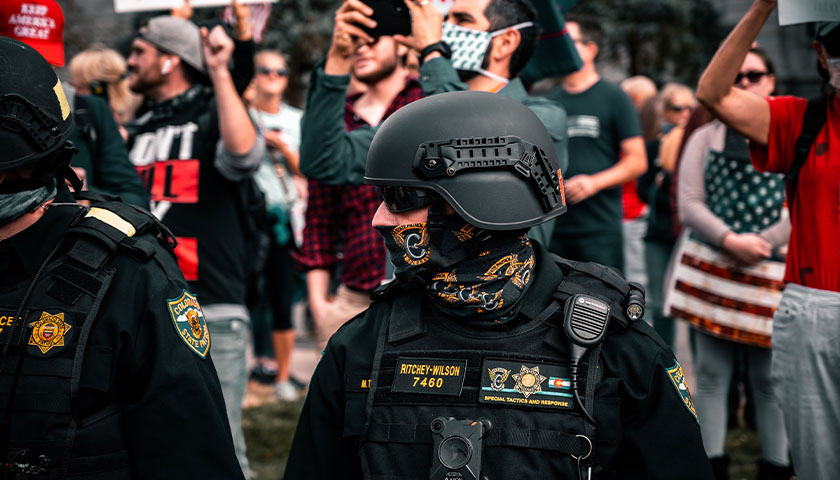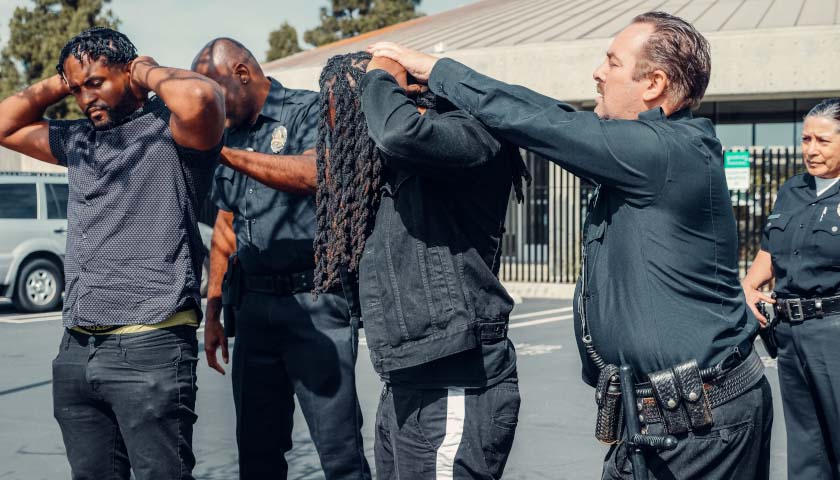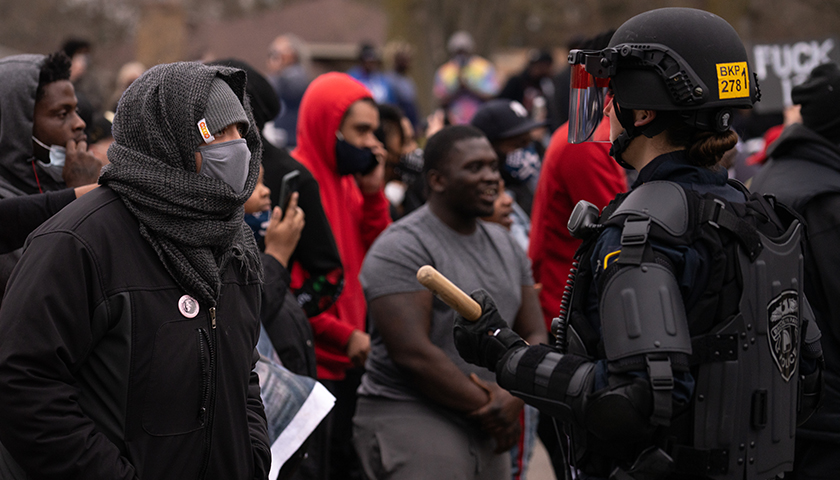One might be inclined to apply Hanlon’s razor—never attribute to malice that which is adequately explained by stupidity—to the actions of law enforcement on January 6, 2021. One might even be inclined to replace “stupidity” with “incompetence” to explain why police behaved the way they did that afternoon. But a growing body of evidence suggests neither stupidity nor incompetence can justify what now appears to be the worst incident of police brutality against political protesters since the civil rights era. After two years of watching cherry-picked video clips produced by the Department of Justice and the news media to depict Trump supporters as the violent aggressors on January 6, the public now has an opportunity to see what really happened thanks to police body camera footage released at trial.
Read MoreTag: police brutality
Report: 12 Percent of Law Enforcement Officers Were Assaulted While on Duty in 2020
Nearly 12% of police officers were assaulted while on duty in 2020, according to annual state level data collected by the FBI. Alaska reported the greatest percentage, California the greatest number.
A total of 60,105 officers were assaulted nationwide, with the overwhelming majority assaulted, and injured, by assailants’ hands and feet.
Nationwide, 26% of assaults in 2020 involved a deadly weapon that wasn’t a firearm; 5% involved a firearm.
Read MoreCommentary: Get Ready for a New Roaring Twenties
On New Year’s Eve of 2019, revelers gathered around the globe to ring in a new decade. Many jubilantly attended “Roaring Twenties” parties, adorned in elegant evening wear, cloche and Panama hats, and knickerbockers, harkening back to an exciting, culturally vibrant era of economic prosperity. But whatever veiled hopes partygoers had for a booming future soon met jarring realities: a once-in-a-century pandemic, global lockdowns, an economic recession, and widespread civil unrest stemming from an incident of police brutality. The Roaring 2020s were not to be, it seemed.
Take heart: Mark P. Mills, a physicist, senior fellow at the Manhattan Institute, faculty fellow at Northwestern University, and a partner in Montrose Lane, an energy-tech venture fund, is out to rekindle our collectively dashed hopes. In his new book, The Cloud Revolution: How the Convergence of New Technologies Will Unleash the Next Economic Boom and a Roaring 2020s, Mills convincingly argues with verve, vitality, and – most importantly – evidence, that humanity is about to take a great step forward in the coming decade. And unlike the first Roaring Twenties, these won’t need to end with a Great Depression.
In the opening pages, Mills reminds us that the original Roaring Twenties didn’t start off so auspiciously, either. In fact, separated by a century, our situation seems eerily similar. The 1918 flu pandemic ran well into 1920, triggering a severe U.S. recession that lasted through summer 1921. Violent riots and political instability were also prevalent. Yet from this pit of public despair, Americans pulled themselves out. Propelled by remarkable advancements in mass production, medicine, electrification, communications via telephone and radio, movies, automobiles, and aviation, the United States saw its GDP rise by an astounding 43% between 1921 and 1929.
Read MoreCommentary: Select Committee Covering Up Police Brutality on January 6th
The family of Rosanne Boyland, one of two female Trump supporters who died at the Capitol on January 6, just announced they have hired a lawyer to investigate the suspicious circumstances of her untimely death. Boyland, 34, traveled with her friend Justin Winchell from Georgia to Washington to hear President Trump’s speech.
The pair then walked from the Ellipse to Capitol Hill; a photo published in a local Georgia newspaper shows Boyland smiling, wearing Old Glory sunglasses and carrying a “Don’t Tread on Me” flag that day.
Read MoreCommentary: Terror in the Capitol Tunnel
In 2018, after a local news crew filmed Ryan Nichols rescuing dogs abandoned by their owners after Hurricane Florence, the former Marine appeared on the “Ellen DeGeneres Show.” Not only did DeGeneres commend Nichols’ longtime work as a search-and-rescue volunteer, she donated $25,000 to the Humane Society in his name and gave Ryan and his wife, Bonnie, a $10,000 check to pay for the honeymoon they had missed the year before so Ryan could assist rescue efforts in the wake of Hurricane Harvey.
But instead of heading to Hawaii, the Nicholses used the generous donation to buy a rescue boat. With his Marine buddy and best friend, Alex Harkrider, at his side, the pair has participated in “dozens of hurricane rescues and disaster relief efforts,” according to Joseph McBride, Nichols’ attorney.
Three years after his appearance on the DeGeneres show, Nichols was featured on another program, but this time, Nichols spoke from the fetid confines of a political prison in the nation’s capital. And instead of telling a heroic story of saving dogs drowning in rising flood waters, Nichols told Newsmax host Greg Kelly a harrowing tale of what he saw at the U.S. Capitol on January 6.
Read MoreCommentary: The Insufferable Piety of the Progressive Elites
Freedom in Australia is now at the mercy of a state and its police apparatus bent on controlling people’s every movement.
But despite the extensive footage of protests gone violent, neither American liberal media nor domestic social justice movements are raising alarms about police brutality in that country.
Read MoreThe Department of Justice Bans No-Knock Entries, Chokeholds, and Other Practices
The Department of Justice (DOJ) has announced a comprehensive ban on numerous practices in law enforcement, aimed at curbing tactics that some claim can lead to instances of so-called “police brutality,” according to Politico.
In a statement issued by Deputy Attorney General Lisa Monaco, the department said it would be banning the use of chokeholds and carotid restraints by law enforcement officers, except in circumstances where “the officer has a reasonable belief that the subject of such force poses an imminent danger of death or serious physical injury to the officer or to another person.” The department is also banning no-knock warrants, except in situations where an officer believes that announcing their identity could lead to physical harm.
Read MoreOfficer Identified, Looting Met with Heavy National Guard Presence in Brooklyn Center
The Brooklyn Center police officer responsible for shooting 20-year-old Daunte Wright was identified Monday evening as agitators surrounded the local police station for a second straight night.
According to the Minnesota Bureau of Criminal Apprehension, officer Kim Potter, a 26-year veteran of the force, fired the fatal shot in Sunday’s incident. She is currently on administrative leave and a decision regarding her future with the Brooklyn Center Police Department is expected Tuesday.
Potter mistakenly drew her handgun instead of her Taser when Wright resisted arrest, according to partial body camera video released Monday.
Read More
